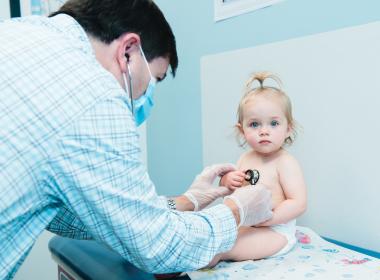What Is the Connecticut Newborn Screening Network?
A simple blood test can detect more than 60 rare genetic conditions in newborns. If left untreated, these disorders can lead to illness, physical disability, developmental delay, or even death. Nurses perform a heel stick on every newborn in Connecticut to collect a few drops of blood and send those samples to a state laborary. In any given year, about 1 percent of the samples are flagged as being out of the normal range.
The Connecticut Newborn Screening Network responds to all reports of infants who have a flagged newborn screen. The Network is staffed by board-certified physicians, genetic counselors, registered nurses, and a nurse analyst. Follow-up services are provided at Connecticut Children’s Specialty Care in Hartford, Farmington, Danbury or Shelton, or at Yale New Haven Hospital.





